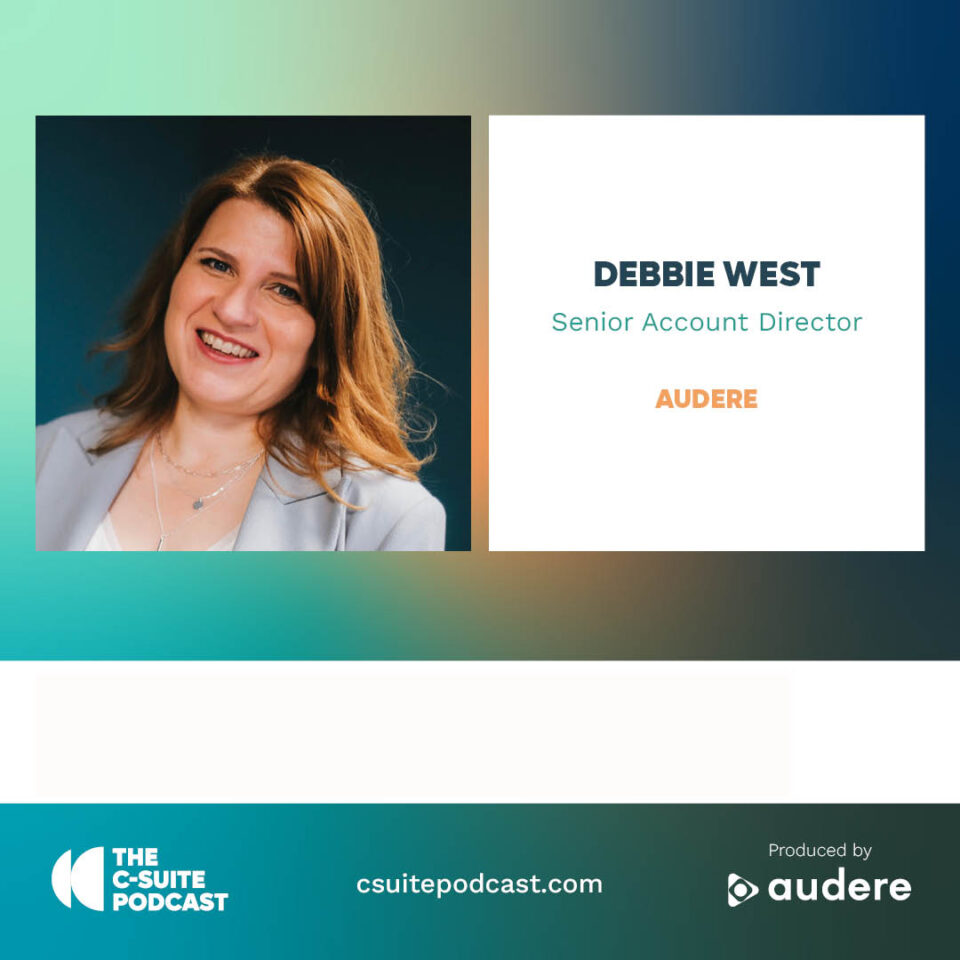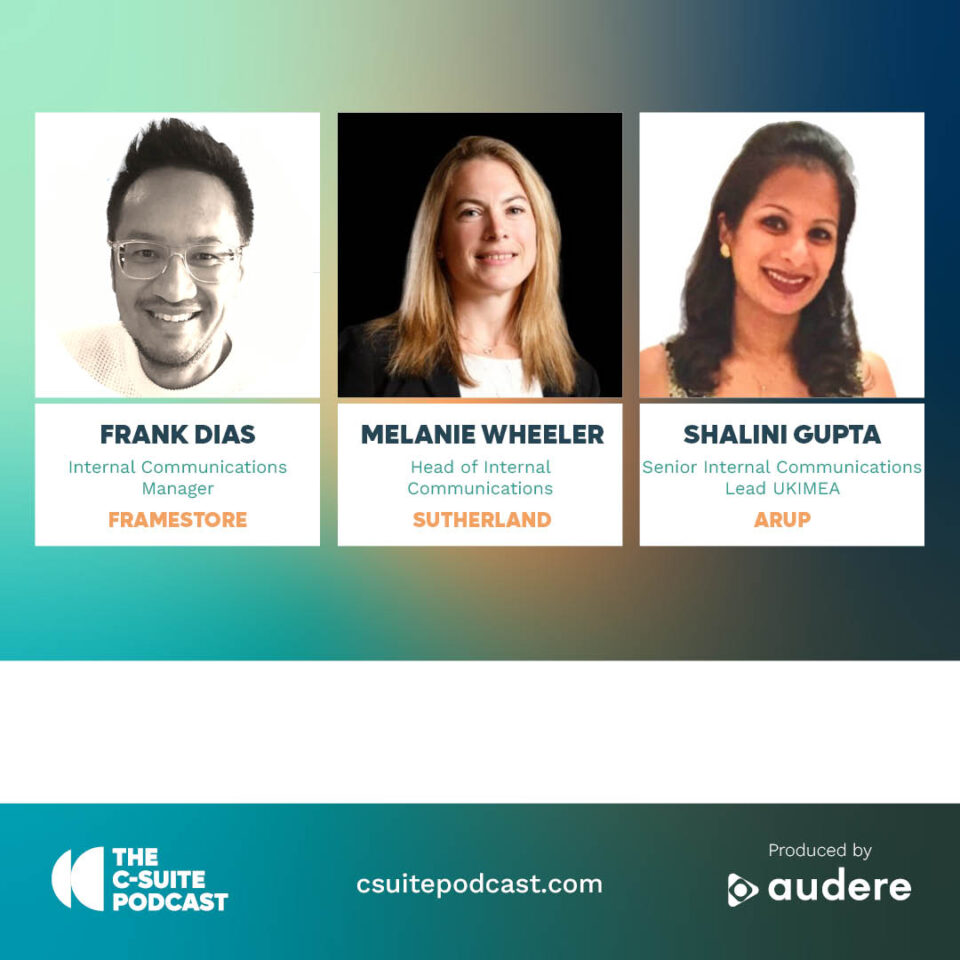
PRCA members receive 10 CPD points for listening to this podcast if they log it on the PRCA CPD programme.
The first show of 2016 looked at the importance of Social Media to the Agricultural industry.
Russell Goldsmith was joined by Caroline Schmitt, Global Head of Customer Marketing & Digital at ADAMA Agricultural Solutions at the time of recording, Emma Craigie, Head of Media at The Ad Plain. They were joined by Andrew Ward MBE, Farmer on Glebe Farm. Andrew’s farm is one of only 23 Flagship Farms of McDonald’s in Europe. He is also the founder of Forage Aid and joined on the line from his farm in Lincolnshire. Also featuring was Simon Haley, a Rural Business Advisor at SRH Agribusiness who had been interviewed on Skype the week before.
Themes discussed included:
- How industry suppliers engage with Farmers and the wider Agricultural community
- How farmers use twitter to develop communities amongst themselves to support each other
- Various social channels and how they are used in different territories
- Responding to negative comments and engaging with the wider public
- Phone and internet connectivity in rural areas
- Future of Agricultural Industry and challenges faced by the farming community
The show started by discussing how ADAMA is working with The Ad Plain to develop its Social Media Strategy, something they were relatively new to. The organisation went through a rebrand in 2014 and is keen to use Social Media to fit with its values of establishing a dialogue with the farming ecosystem. Farmers themselves are key given the company doesn’t sell directly to them but instead through distribution, so it’s important for them to create a feedback loop and listen to what is really going on and how they can help beyond just selling product.
Caroline and Emma explained that ADAMA uses a number of different social channels to reach the farming community. Their engagement levels vary across channels depending on the territory. LinkedIn is important because, as Caroline reminded us, farms are of course businesses. She said that Facebook works well in Latin America (they have over 22,500 likes on their ADAMA Brazil Facebook page and almost 15,000 followers on the ADAMA Brazil LinkedIn page) and Twitter of course is important, but that they have bespoke channels for a number of regions, although this is still in development. Emma added that the ADAMA Global account regularly sees engagement rates of 8% on Twitter, particularly on posts around technology and where they celebrate farmers and in the UK. They have also seen engagement levels rise to as much as 9% to 15% where the team have been posting around specific events, ADAMA has also started to use YouTube to tell real life stories of farmers from around the world.
Andrew talked about how Social plays an important part in his day to day work on the farm itself. The farming community has developed on twitter to support each other and he used Twitter to launch Forage Aid, a charity that supports farmers whose livestock has been affected by an extreme weather event by providing forage and/or bedding to those in need.
In a pre-recorded Skype interview, Simon Haley talked about three twitter feeds that he co-founded or set up himself:
- @AgrichatUK, established in 2011, which has over 18,800 followers, and provides a platform for farmers to engage with each other. The channel has a specific discussion every Thursday from 8-9.30pm, and all previous chats have been archived on a website Simon believes that the community has also gained credibility by having organisations such as DEFRA and the NFU take part as guests too. Emma has also used the channel for ADAMA and other clients of hers. She feels it’s a great way for them to keep in touch with the community and talk directly to the farmers and indeed, Andrew also regularly takes part in the chats and said that they are a great way of sharing information and learning from each other.
- @FarmersoftheUK, set up in January 2104 and now at over 17,900 followers, where a different farmer is featured every week and takes over the tweeting of the channel.
- @FarmsOfTheWorld, similar concept to @FarmersoftheUK but taking the concept to a global stage, with now over 2,300 followers
Emma mentioned two other important initiatives that the farming community use:
- The Farming Forum
- #clubhectare, Founded by Jono Dixon
Also discussed was how the industry responds to negative comments and criticism, particularly on social media. Emma explained how ‘Agvocates’ are defending the industry, reacting to comments. She pointed to one example of how they provided explanations of how farming is helping farmland birds and certain species. However, she also talked about some of the more proactive initiatives that help educate the wider public, such as Open Farm Sunday, where Farmers are encouraged to open their farms so that the public can come and see what’s happening in them, and that last year, there was a 40% increase in visits to farms. She also highlighted the fact that BBC’s Countryfile gets over 7.3m viewers, and in fact, on one weekend last year, even beat X Factor in the ratings!
One topic that proved quite sensitive for Andrew in particular was that of connectivity in rural areas and he was quite passionate and critical of the phone companies and the lack of coverage provided by them where it’s required for his work. Dan Bowsher, who head up Social Comms at Vodafone UK did, via twitter, provide a link to numerous articles on Vodafone’s blog on the subject of rural connectivity, the work being done in that space and challenges faced by operators.
Finally, Emma and Caroline finished off by discussing how they see things progressing from a corporate perspective in terms of using social as an educational platform for the wider audiences and public in general.
Did you know that to feed the world for the next 40 years, farmers must produce as much food as has been produced on the entire earth for the last 10,000 years!
Finally, Caroline referred to a post by Bill Gates on ‘Why the future is bright for the World’s poorest farmers’, This was bringing knowledge about farming and the challenges farmers face on a daily basis around the world to a broader audience and the technology involved in helping them.


